#plastics industry association
Explore tagged Tumblr posts
Text
#center for climate integrity#cci#society for plastics#plastics industry association#vinyl institute#society for the plastics industry#plastics recycling foundation#epa#eastman chemical#exxon chemical#beyond plastics
13 notes
·
View notes
Text
Things the Biden-Harris Administration Did This Week #28
July 19-26 2024
The EPA announced the award of $4.3 billion in Climate Pollution Reduction Grants. The grants support community-driven solutions to fight climate change, and accelerate America’s clean energy transition. The grants will go to 25 projects across 30 states, and one tribal community. When combined the projects will reduce greenhouse gas pollution by as much as 971 million metric tons of CO2, roughly the output of 5 million American homes over 25 years. Major projects include $396 million for Pennsylvania’s Department of Environmental Protection as it tries to curb greenhouse gas emissions from industrial production, and $500 million for transportation and freight decarbonization at the ports of Los Angeles and Long Beach.
The Biden-Harris Administration announced a plan to phase out the federal government's use of single use plastics. The plan calls for the federal government to stop using single use plastics in food service operations, events, and packaging by 2027, and from all federal operations by 2035. The US government is the single largest employer in the country and the world’s largest purchaser of goods and services. Its move away from plastics will redefine the global market.
The White House hosted a summit on super pollutants with the goals of better measuring them and dramatically reducing them. Roughly half of today's climate change is caused by so called super pollutants, methane, hydrofluorocarbons (HFCs), and nitrous oxide (N2O). Public-private partnerships between NOAA and United Airlines, The State Department and NASA, and the non-profit Carbon Mapper Coalition will all help collect important data on these pollutants. While private firms announced with the White House plans that by early next year will reduce overall U.S. industrial emissions of nitrous oxide by over 50% from 2020 numbers. The summit also highlighted the EPA's new rule to reduce methane from oil and gas by 80%.
The EPA announced $325 million in grants for climate justice. The Community Change Grants Program, powered by President Biden's Inflation Reduction Act will ultimately bring $2 billion dollars to disadvantaged communities and help them combat climate change. Some of the projects funded in this first round of grant were: $20 million for Midwest Tribal Energy Resources Association, which will help weatherize and energy efficiency upgrade homes for 35 tribes in Michigan, Minnesota, and Wisconsin, $14 million to install onsite wastewater treatment systems throughout 17 Black Belt counties in Alabama, and $14 million to urban forestry, expanding tree canopy in Philadelphia and Pittsburgh.
The Department of Interior approved 3 new solar projects on public land. The 3 projects, two in Nevada and one in Arizona, once finished could generate enough to power 2 million homes. This comes on top of DoI already having beaten its goal of 25 gigawatts of clean energy projects by the end of 2025, in April 2024. This is all part of President Biden’s goal of creating a carbon pollution-free power sector by 2035.
Treasury Secretary Janet Yellen pledged $667 million to global Pandemic Fund. The fund set up in 2022 seeks to support Pandemic prevention, and readiness in low income nations who can't do it on their own. At the G20 meeting Yellen pushed other nations of the 20 largest economies to double their pledges to the $2 billion dollar fund. Yellen highlighted the importance of the fund by saying "President Biden and I believe that a fully-resourced Pandemic Fund will enable us to better prevent, prepare for, and respond to pandemics – protecting Americans and people around the world from the devastating human and economic costs of infectious disease threats,"
The Departments of the Interior and Commerce today announced a $240 million investment in tribal fisheries in the Pacific Northwest. This is in line with an Executive Order President Biden signed in 2023 during the White House Tribal Nations Summit to mpower Tribal sovereignty and self-determination. An initial $54 million for hatchery maintenance and modernization will be made available for 27 tribes in Alaska, Washington, Oregon, and Idaho. The rest will be invested in longer term fishery projects in the coming years.
The IRS announced that thanks to funding from President Biden's Inflation Reduction Act, it'll be able to digitize much of its operations. This means tax payers will be able to retrieve all their tax related information from one source, including Wage & Income, Account, Record of Account, and Return transcripts, using on-line Individual Online Account.
The IRS also announced that New Jersey will be joining the direct file program in 2025. The direct file program ran as a pilot in 12 states in 2024, allowing tax-payers in those states to file simple tax returns using a free online filing tool directly with the IRS. In 2024 140,000 Americans were able to file this way, they collectively saved $5.6 million in tax preparation fees, claiming $90 million in returns. The average American spends $270 and 13 hours filing their taxes. More than a million people in New Jersey alone will qualify for direct file next year. Oregon opted to join last month. Republicans in Congress lead by Congressmen Adrian Smith of Nebraska and Chuck Edwards of North Carolina have put forward legislation to do away with direct file.
Bonus: American law enforcement arrested co-founder of the Sinaloa Cartel, Ismael "El Mayo" Zambada. El Mayo co-founded the cartel in the 1980s along side Joaquín "El Chapo" Guzmán. Since El Chapo's incarceration in the United States in 2019, El Mayo has been sole head of the Sinaloa Cartel. Authorities also arrested El Chapo's son, Joaquin Guzman Lopez. The Sinaloa Cartel has been a major player in the cross border drug trade, and has often used extreme violence to further their aims.
#Joe Biden#Thanks Biden#kamala harris#us politics#american politics#politics#climate change#climate crisis#climate action#tribal rights#IRS#taxes#tax reform#El Chapo
772 notes
·
View notes
Text
Plastic producers have known for more than 30 years that recycling is not an economically or technically feasible plastic waste management solution. That has not stopped them from promoting it, according to a new report. “The companies lied,” said Richard Wiles, president of fossil-fuel accountability advocacy group the Center for Climate Integrity (CCI), which published the report. “It’s time to hold them accountable for the damage they’ve caused.” Plastic, which is made from oil and gas, is notoriously difficult to recycle. Doing so requires meticulous sorting, since most of the thousands of chemically distinct varieties of plastic cannot be recycled together. That renders an already pricey process even more expensive. Another challenge: the material degrades each time it is reused, meaning it can generally only be reused once or twice. The industry has known for decades about these existential challenges, but obscured that information in its marketing campaigns, the report shows. The research draws on previous investigations as well as newly revealed internal documents illustrating the extent of this decades-long campaign. Industry insiders over the past several decades have variously referred to plastic recycling as “uneconomical”, said it “cannot be considered a permanent solid waste solution”, and said it “cannot go on indefinitely”, the revelations show. The authors say the evidence demonstrates that oil and petrochemical companies, as well as their trade associations, may have broken laws designed to protect the public from misleading marketing and pollution.
1K notes
·
View notes
Text
"Clothing tags, travel cards, hotel room key cards, parcel labels … a whole host of components in supply chains of everything from cars to clothes. What do they have in common? RFID tags.
Every RFID (Radio Frequency Identification) tag contains a microchip and a tiny metal strip of an antenna. A cool 18bn of these are made – and disposed of – each year. And with demands for product traceability increasing, ironically in part because of concerns for the social and environmental health of the supply chain, that’s set to soar.
And guess where most of these tags end up? Yup, landfill – adding to the burgeoning volumes of e-waste polluting our soils, rivers and skies. It’s a sorry tale, but it’s one in which two young graduates of Imperial College London and Royal College of Art are putting a great big green twist. Under the name of PulpaTronics, Chloe So and Barna Soma Biro reckon they’ve hit on a beguilingly simple sounding solution: make the tags out of paper. No plastic, no chips, no metal strips. Just paper, pure and … simple … ? Well, not quite, as we shall see.
The apparent simplicity is achieved by some pretty cutting-edge technical innovation, aimed at stripping away both the metal antennae and the chips. If you can get rid of those, as Biro explains, you solve the e-waste problem at a stroke. But getting rid of things isn’t the typical approach to technical solutions, he adds. “I read a paper in Nature that set out how humans have a bias for solving problems through addition – by adding something new, rather than removing complexity, even if that’s the best approach.”
And adding stuff to a world already stuffed, as it were, can create more problems than it solves. “So that became one of the guiding principles of PulpaTronics”, he says: stripping things down “to the bare minimum, where they are still functional, but have as low an environmental impact as possible”.
...how did they achieve this magical simplification? The answer lies in lasers: these turn the paper into a conductive material, Biro explains, printing a pattern on the surface that can be ‘read’ by a scanner, rather like a QR code. It sounds like frontier technology, but it works, and PulpaTronics have patents pending to protect it.
The resulting tag comes in two forms: in one, there is still a microchip, so that it can be read by existing scanners of the sort common within retailers, for example. The more advanced version does away with the chip altogether. This will need a different kind of scanner, currently in development, which PulpaTronics envisages issuing licences for others to manufacture.
Crucially, the cost of both versions is significantly cheaper than existing RFID kit – making this a highly viable proposition. Then there are the carbon savings: up to 70% for the chipless version – so a no-brainer from a sustainability viewpoint too. All the same, industry interest was slow to start with but when PulpaTronics won a coveted Dezeen magazine award in late 2023, it snowballed, says So. Big brands such as UPS, DHL, Marks & Spencer and Decathlon came calling. “We were just bombarded.” Brands were fascinated by the innovation, she says, but even more by the price point, “because, like any business, they knew that green products can’t come with a premium”."
-via Positive.News, April 29, 2024
--
Note: I know it's still in the very early stages, but this is such a relief to see in the context of the environmental and human rights catastrophes associated with lithium mining and mining for rare earth metals, and the way that EVs and other green infrastructure are massively increasing the demand for those materials.
I'll take a future with paper-based, more humane alternatives for sure! Fingers crossed this keeps developing and develops well (and quickly).
#I do really wish it could be read by regular scanners already though#that's what I thought at first#and that would've been fucking amazing#but this is still pretty cool#electronics#science and technology#green technology#ewaste#landfill#lithium#lithium mining#human rights#environment#climate action#climate hope#rfid#rfid technology#rfid tags#good news#hope
451 notes
·
View notes
Text
Christopher Brown’s ‘A Natural History of Empty Lots’
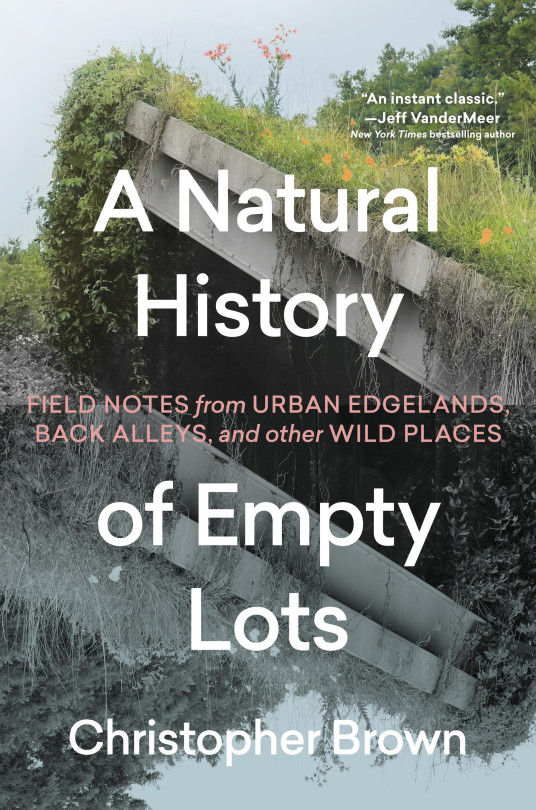
On SEPTEMBER 24th, I'll be speaking IN PERSON at the BOSTON PUBLIC LIBRARY!

Christopher Brown is an accomplished post-cyberpunk sf writer, a tech lawyer with a sideline in public interest environmental law, the proud owner of one of the most striking homes I have ever seen, and an urban pastoralist who writes about wildlife in ways I've never seen and can't get enough of:
https://fieldnotes.christopherbrown.com/
All of these facets of Brown's identity come together today with the launch of A Natural History of Empty Lots: Field Notes from Urban Edgelands, Back Alleys and other Wild Places:
https://christopherbrown.com/a-natural-history-of-empty-lots/
This is a frustratingly hard to summarize book, because it requires a lot of backstory and explanation, and one of the things that makes this book so! fucking! great! is how skillfully Brown weaves all that stuff into his telling. Which makes me feel self-conscious as I try to summarize things, because there's no way I'll do this as well as he did, but whatever, here goes.
Brown is a transplant from rural Iowa to Austin, where he set out to start a family, practice tech law during the dotcom boom, and write science fiction, as part of a circle of writers loosely associated with cyberpunk icon @brucesterling. After both the economy and his marriage collapsed, Brown started his restless perambulations around Austin's abandoned places, sacrifice zones, the bones of failed housing starts and abandoned dot-crash office parks.
When he did, something changed in him. Slowly, his eyes learned to see things that they had just skipped over. Plants, animals, and spoor and carapaces and dens of all description, all around him, a secret world. These were not pockets of "wilderness" in the city, but they were pockets of wildness. Birds' nests woven with plastic fibers scavenged from nearby industrial dumpsters; trees taking root in half-submerged tires rolled into a creekbed, foxes and rodents playing out a real-life version of the classic ecosystem simulation exercise on the edge of an elevated highway that fills the same function as the edge of a woodland where predator and prey meet.
As Brown fell in love again – with the artist and architect Agustina Rodriguez – he conceived of a genuinely weird and amazing plan to build a house. A very weird house, in a very weird place. He bought a plot of wasteland that had once housed the head-end of an oil pipeline (connected to a nearby oil-storage facility that poisoned the people who lived near it, in an act of wanton environmental racism) and had been used as a construction-waste dump for years.
After securing an extremely unlikely loan, Brown remediated the plot, excavating the oil pipeline, then building the most striking home you have ever seen in the resulting trench. Brown is a pal of mine, and this is where I stay when I'm in Austin, and I can promise you, the pictures don't do it justice:
https://www.texasmonthly.com/style/christopher-brown-edgeland-house-austin/
Formally, A Natural History of Empty Lots is a memoir that explains all of this. But not really. Like I say, this is just the back story. What Natural History really is, is a series of loosely connected essays that explains how everything fits together: colonial conquest, Brown's failed marriage, his experience as a lawyer learning property law, what he learned by mobilizing that learning to help his neighbors defend the pockets of wildness that refuse to budge.
It's an erudite book, skipping back through millennia of history, sidewise through the ecology of Texas, all while somehow serving as a kind of spotter's guide to the wild things you can see in Austin – and maybe, in your town – if you know how to look. It's a book about how people change the land, and how the land changes people. It is filled with pastoral writing that summons Kim Stanley Robinson by way of Thoreau, and it sometimes frames its philosophical points the way a cyberpunk writer would – like Neal Stephenson writing a cyberpunk trilogy that is also the story of Leibniz and Newton fighting over credit for inventing calculus:
https://memex.craphound.com/2004/11/20/neal-stephensons-system-of-the-world-concludes-the-baroque-trilogy/
Brown is a stupendous post-cyberpunk writer, and also a post-cyberpunk person, which I've known for sure since I happened upon him one morning, thoughtfully mowing his roof with a scythe:
https://www.flickr.com/photos/doctorow/46433979075/
You can get a sense of what that means in this lockdown-era joint presentation that Chris, Bruce Sterling and I did on "cyberpunk and post-cyberpunk":
https://archive.org/details/asl-cyberpunk
Brown is a spectacular novelist. His ecofascist civil war trilogy that opens with Tropic of Kansas got so much right about the politics of American demagoguery and was perfectly timed with the Trump presidency:
https://memex.craphound.com/2017/07/11/tropic-of-kansas-making-america-great-again-considered-harmful/
The sequel, Rule of Capture, uses the device of courtroom drama in a way that comes uncomfortably close to the Orwell/Kafka mashup that the authorities have created to deal with environmental protesters:
https://memex.craphound.com/2019/08/12/rule-of-capture-inside-the-martial-law-tribunals-that-will-come-when-climate-deniers-become-climate-looters-and-start-rendering-environmentalists-for-offshore-torture/
And the final volume, Failed State, is one of the most complicated complicated utopias you could ask for. This is what people mean by "thrilling conclusion":
https://pluralistic.net/2020/08/12/failed-state/#chris-brown
As brilliant as Brown is in fiction mode, his nonfiction is unclassifiably, unforgettably brilliant. A Natural History of Empty Lots is the kind of book that challenges how you feel about the crossroads we're at, the place you live, and the place you want to be.

The paperback edition of The Lost Cause, my nationally bestselling, hopeful solarpunk novel is out this month!

If you'd like an essay-formatted version of this post to read or share, here's a link to it on pluralistic.net, my surveillance-free, ad-free, tracker-free blog:
https://pluralistic.net/2024/09/17/cyberpunk-pastoralism/#time-to-mow-the-roof
#pluralistic#books#reviews#gift guide#pastoralism#environmentalism#ecology#cyberpunk#austin#texas#climate#christopher brown#conservation#urbanism#ecosocialism#architecture#environmental racism#writing
353 notes
·
View notes
Text
The big 5 personality chart

This chart provides an in depth view of personality traits according to the Big Five personality model.
1. Metatraits (Center): Two main overarching traits—Stability and Plasticity. Stability reflects consistency and emotional regulation, while Plasticity involves openness and adaptability.
2. Domains (Next Layer): Each metatrait has associated domains, which align with the Big Five traits:
• Stability is connected to Neuroticism (but interpreted here as low emotional instability), Agreeableness, and Conscientiousness.
• Plasticity is linked to Openness and Extraversion.
3. Aspects (Middle Layer): Each domain splits into two aspects, showing more specific attributes within each Big Five trait:
• For instance, Agreeableness is divided into Compassion and Politeness.
4. Facets (Outer Layer): Each aspect is further broken down into specific facets, representing detailed behaviors and tendencies:
• For example, Volatility under Neuroticism includes traits like irritability and anger.
——————
This chart can help us understand that everyone we meet has a unique blend of traits, tendencies, and behaviors, shaped by different aspects of personality.
What this means for how we perceive and interact with others:
• Recognize different traits that influence behaviors, like compassion leading to empathy or assertiveness leading to leadership.
• Understanding these facets allows us to see where potential misunderstandings might arise. If someone has high volatility (prone to mood swings), we might approach them with extra patience, or if they have high orderliness, they may prefer more structure and organization in shared activities
• Value the unique strengths others bring, like creativity or reliability, based on their personality traits. Recognizing that traits like intellect (part of openness) and industriousness (part of conscientiousness) shape how people approach life goals and problem solving can make us more accepting of others strengths & weaknesses.
• Observing traits in others can inspire self reflection and growth in areas like patience, creativity, or organization.
126 notes
·
View notes
Text



suburban legends - in depth of a theory that the song is written about matthew gray gubler
this theory was made by me and rafa (@bendthwrules on twitter) cause we’re both delusional and have lots of free time apparently lol please take this lightly this is just to have fun. if you have any thoughts to share or add to our theory dont be shy !
first and foremost, we’ll start with a timeline then dive in to analyze the lyrics! it all starts with taylor’s infamous 4th of july parties, as most of you probably already know, matthew was in one of her parties in 2013, she threw the party at her house in rhode island.
on july 3rd, matthew tweeted that his next stop was new england, later that day, he took a photo with a fan during a flight to connecticut. the rumors that he was at her party started when he posted pictures with face paint and sparklers and people started to notice similarities between his and taylor’s pictures, he later deleted said pictures.
for reference, first are the pictures he posted and the pictures taylor took with other friends on the same occasion.

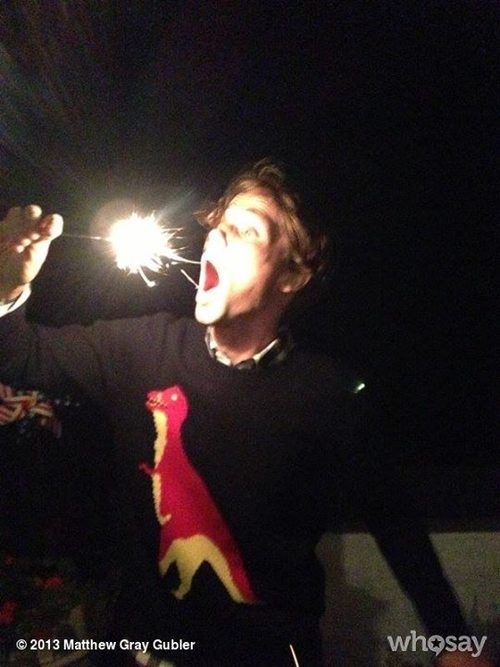
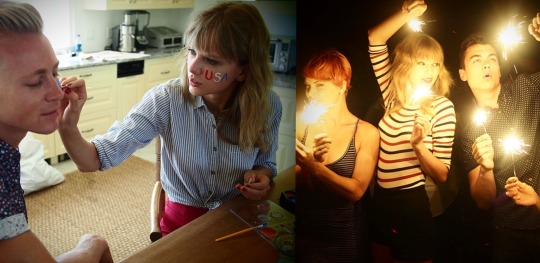
later on, we got this picture of the of them together, confirming that he was at her party indeed. (i can’t remember who posted this so if you remember please let me know)
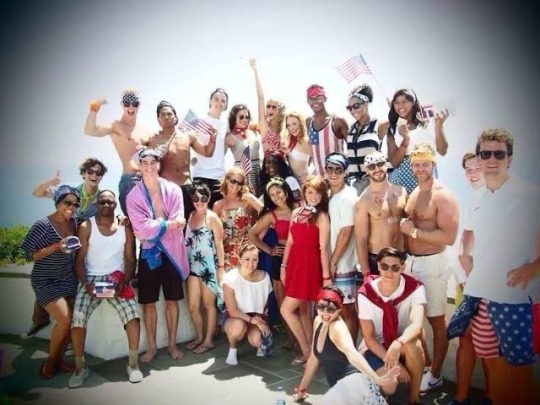
his attendance on taylor’s independence party sparked rumors of a possible romance, although they didn’t officially date, it’s common knowledge that they did have a fling (also for the sake of the theory we’ll accept that as true lol).
let’s fast forward to 300 (and almost 65) days later, a new movie premieres at the fantasia international film festival on june of 2014, the movie is suburban gothic. and this was the starting point for me and rafa i mean suburban gothic… suburban legends…
taylor announced her first pop album ever, 1989, on a yahoo worldwide livestream on august 18th, 2014. by the time she announced it, of course, the album was already finished and the tracks it would have were already determined so anything taylor wrote after that, wouldn’t be in the original version of 1989.
our grand theory is that the premier of matthew’s new movie, suburban gothic, made taylor think back on her (very very) brief relationship with him, therefore, inspiring her to write suburban legends, a direct reference to the movie title.
without further ado, let’s get to the lyrics!!

taylor start the song by singing
“You had people who called you on unmarked numbers
In my peripheral vision”
which led us to associating it to mgg’s previous girlfriend and also his co-star in suburban gothic, kat dennings. since they were doing a movie together, they probably were in contact a lot and that’s possibly what taylor was referencing in this verse.
she then goes
“I let it slide like a hose on a slippery plastic summer
All was quickly forgiven”
keep in mind all the 4th of july parties are in the middle of summer, this verse could be a direct reference to that since the very first rumors started with a party in the middle of summer.
“And you kiss me in a way that's gonna screw me up forever”

do i even need to say anything else?
“I had the fantasy that maybe our mismatched star signs would surprise the whole school”
when sharing my thoughts on the lyrics with rafa, i reminded her of what taylor wrote in state of grace “just twin fire signs”, this could be about taylor and the person she’s singing about sharing star signs (of the elements fire) but also about them being twin flames (or at least she thought so). just like she purposefully mentioned matching signs in previous lyrics, i do believe she would mention mismatched signs, mind you that taylor is a sagittarius and matthew is a pisces.
that verse could also be a metaphor about how would people view their relationship, they are from different parts of the industry and didn’t share many mutual friends. “surprising the whole school” could be about how shocked the general public would be about them being together.
“When I ended up back at our class reunion walking in with you
You'd be more than a chapter in my old diaries with the pages ripped out”
here i want to highlight the expression “you’d be” and in the previous verse “i had a fantasy”, when using these expressions, taylor is taking a position of someone imagining something, someone wondering even daydreaming about what things would be like. all the other theories about who this song is about revolve around people who taylor actually had a relationship with like harry styles and it just doesn’t make sense to me why she’d be having a fantasy of how things would be like when she knew how things were. personally, this verses make much more sense when placed in a context of someone who taylor didn’t have a real relationship with, like matthew.
“I know that you still remember”
if we’re starting from the assumption that she wrote the song almost a year later looking back at what happened between them, this verse could be how she is directly talking to him, she is remembering what happened and she knows he still remember as well.
“When you told me we'd get back together”
this could possibly hint to him wanting to get back together with her, wanting to actually evolve into a true relationship.
“I broke my own heart 'cause you were too polite to do it”
although i think there’s something almost sarcastic to this verse (like you were sooo polite you couldn’t even break my heart 🥴), i still do think it makes a connection to the previous verse i mentioned, perhaps he wanted to have a real relationship with her and when she realized it wouldn’t work, she had to break her own heart so she could move on.
and some other verses that just scream matthew gray gubler (iykyk) but i can’t quite put into words like “You were so magnetic it was almost obnoxious” or “We were born to be national treasures”.

well, that was too much ! i think it’s pretty clear that i’m not the most skilled writer (😭) but this was just to share the thoughts that were making me go crazy. huuuuge thanks to rafa cause she was the one to make me stop and think about it also helped me with the writing process and also is big on timeline cause she’s been on both fandoms a long time, ty love 🩷.
please let me know your thoughts on this, love you pookies 🫶
#mgg#matthew gray gubler#taylor swift#ts#1989#1989 taylor's version#suburban gothic#suburban legends#fan theory#taylor swift theories#gublernation#dare i debut the tag vivi theorizes#Spotify
89 notes
·
View notes
Note
love ur random village headcanons!! what do you think is the beauty standard in the villages? for girls & boys
GALAXY BRAIN HAS ENTERED THE CHAT! YOU ARE ONTO SOMETHING...
It's a subject that has been on the back of my mind for a while so imma try to make sense of the few full paper notes I have... --------------------------------------------------//////////////------------------
Naruto Headcanons - Beauty Standards in Different Villages.
BEFORE WE START, i wanna remind the fact that not fitting these description doesnt make you ugly. It is what is considered ideal based on the village's cultural norms, history, social norms and etc.
KONOHA:
Because of the founders Hashimara & Madara's traits, like blonde hair or other flashy colors (except red) are perceived as uncommon/strange.
Over time, the standard switched from Hashirama features to Madara's.
Ironically, Konoha pumps out the most plastic surgeons than any surgeons than any other nations. Most of them operate outside the Country of Fire.
STANDARD FOR KONOHA MEN:
In the past, long hair in men was admired and desired as it signified you live long enough for them to grow. Wow! you made it this long, you must be strong but this ideal is lost as the preference shifted towards shorter haircuts.
Long slim face
High nose bridge and long nose
SOMEONE FITTING THE MALE BEAUTY STANDARD:


(obviously, Sasuke Uchiha & Minato Namikaze)
OTHER CHARACTERS FITTING THE MALE BEAUTY STANDARD:


Yuji Itadori (Jujutsu Kaisen) & Kang Dahyeok (Killer Crush)
STANDARD FOR KONOHA WOMEN:
Same here, Having long hair has always been perceived as the pinnacle of female beauty. those who cut their hair short or never grow their strands past shoulder-length often get bullied.
Delicate Hands
Round Eyes
Oval Face Shape
PALE SKIN (applies to everybody), as crazy as it sounds, Konoha & Kiri are nations where social status bumps up your attractiveness but let's be real for a minute. The Hyuugas & Uchihas are upheld to such a high pedestal for their social status AND adherence to the beauty standard (pale + oval face + slim long nose)
Also if you have something with your eyes (whatever it is), it's perceived as a positive since special ocular appearances is associated with great physical stregnth.
Along with all the features previously mentioned, if you have a (face + spirit) that shines like the sun or burns like an unstoppable fire, it is considered very attractive on both genders.
SOMEONE FITTING THE FEMALE BEAUTY STANDARD:


Ino Yamanaka & Mito Uzumaki
OTHER CHARACTERS FITTING THE FEMALE STANDARD:


Tohru Honda (Fruits Basket) & Shirley Fenette (Code Geass)
----------------------------------------------------------------------------
IWA:
STANDARD FOR IWA MEN:
Being larger is seen as a positive. it is believed that a thicker male body proves it is wealthy and well-fed. On the other side of this, skinny shaming among men is crazyyyyyyy (they don't want to leave Deidara alone). Not all men are bigger or thicker but there's high chances you'll get look down upon for being "too skinny".
if you look like you can't carry a bag of rocks, you don't fit the standard. there's a saying mentioning the need to be "build like a rock" and how its a measure of men's value based on appearance
Larger nose are liked on men, in other nanations (excluding Kumo) would cut you off the beauty strandard by this feature alone
"You need to eat more." "You look like a twig"
facial hair
SOMEONE FITTING THE MALE BEAUTY STANDARD:

Monga
OTHER CHARACTERS FITTING THE MALE STANDARD:
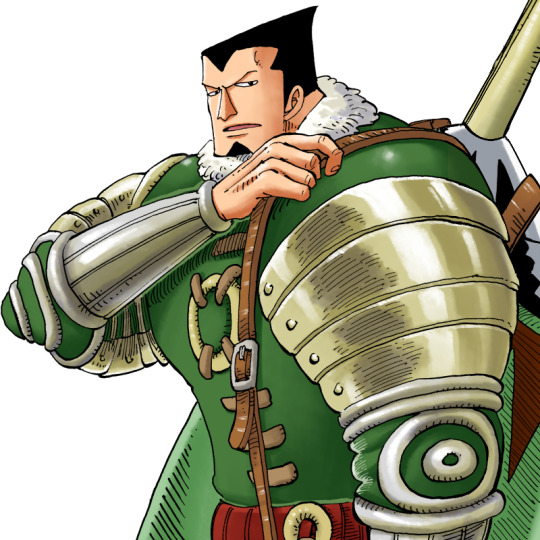

Dalton (One Piece) & Genjirou Tanigaki (Golden Kamuy)
STANDARD FOR IWA WOMEN:
The athletic slim built has always been the standard along with being tall since the average female height is the highest in the world
the perfect combo is perceived to be slim built + long legs.
due to the influence of the massive adult/corn industry, large breasts became valued in women and made their way to the beauty standard.
breast augmentation surgery is a huge and profitable industry but most of the surgeons performing it come from the counrty of fire.
going with the element associated with each village (in this case stone), earth tones colors are seen as more attractive.
SOMEONE FITTING THE FEMALE BEAUTY STANDARD:

Iwa Kunoichi
OTHER CHARACTERS FITTING THE FEMALE STANDARD:


Nico Robin (One Piece) & Makoto Kino/Sailor Jupiter (Sailor Moon)
--------------------------------------------------------------------------
KUMO:
Clear and bright skin, no matter the skin tone.
Yes, Darker skin tones are heavely celebrated are seen as a sign of health and vigority. It is the only nation to consider this feature in its beauty standards modeled after the bloodline of the Raikage. It lead to the prevelence of tanning salons all over the country
in case you don't have it, it's still fine since Kumo is very considered of its diversity. But if you dont, please have clear skin since acne and pimples is frown upon on both genders especially among adults
Kumo has something for pale hair, the hair dye industry is huge over there.
STANDARD FOR KUMO MEN:
it may sound weird but a neat hairline. Also if you start balding, you might as well shave your whole head before being sent to bullying jail.
Strong legs are seen as the peak of mobility and aesthetic for men.
slightly longer faces
SOMEONE FITTING THE MALE BEAUTY STANDARD:


Karai, C & Raikage (for his immaculate physique and the standard for older men)
OTHER CHARACTERS FITTING THE MALE STANDARD:


Kento Nanami (Jujutsu Kaisen) & Aomine Daiki (Kuroko no Basket)
STANDARD FOR KUMO WOMEN
Curvier bodies (Coke bottle body shape) are upheld as the peak of the female beauty standard. hence why Karui was mocked for being slim and small chested. for this very reason, Kumo is the Lipposuction captial of the world.
plump/bigger lips
Winged Doe eyes
SOMEONE FITTING THE FEMALE BEAUTY STANDARD:


Karui & Mabui.
OTHER CHARACTERS FITTING THE FEMALE STANDARD:



Alex Benedetto (GANGSTA), Yoruichi Shihouin (Bleach) & Balalaika (Black Lagoon)
----------------------------------------------------------------------------
KIRI
for centuries, just being of a higher caster could carry you to higher levels of physical attractiveness
STANDARD FOR KIRI MEN:
Shark teeth are a sign of great beauty in men for various ethnicites trough out the country of Water. It signifies resistance and tenacity as many past regimes attemped to supress/breed out this physical trait. Some men shave their own teeth to achieve this look.
Small firece eyes
Short Dark hair
A large and muscular back
Being Tall, by average male residents are the tallest in the world but the out of reach ideal sits around 190-195 cm. Men this height were prime picks for millitary and guerillas trough out Kiri's history, now most of them this height are affiliated with criminal behaviour but aknowdledge for the physical strenght a body this big can offer.
(NSFW) A large schlong. it is a feature more present among the lower caste demography and has been demonized by Yagura's regime as a mean to dehumanize this male population. Ironically, according to many traditions it is perceive as a sign of fretility and often goes hand-in-hand with the height.
it is only recently that "softer" features made their way into the male beauty standard
SOMEONE FITTING THE MALE BEAUTY STANDARD:


Kimimaro & Zabuza Momochi
OTHER CHARACTERS FITTING THE MALE STANDARD:

Kuroko Tetsuya & Kagami Taiga (Kuroko no Basket), both fit the Kiri modern beauty standard (if you ignore Kuroko's height)
According to the most popularized/old school/traditional beauty standard than it would be: Guts (Berserk) & Gyomei Himejima (Demon Slayer)
STANDARD FOR KIRI WOMEN:
Feline/Siren like eyes
Brown or Black Hair
For the longest, curvier bodies were associated with prostitutes belonging to gang or the mobster's female counterpart. The standard have always been average built for women. It goes along why many found Sera very vulgar when she started her carrer. They associated her appearance with women of lower caste.
SOMEONE FITTING THE FEMALE BEAUTY STANDARD:

Suiren
OTHER CHARACTERS FITTING THE FEMALE BEAUTY STANDARD:
Yomi Isayama (Ga-Rei Zero)
---------------------------------------------------------------------
SUNA:
While facial markings/paintings are related to your family/clan/lineage, they are perceived as a great sign of beauty in men and women
head coverings are used for all types of reasons but are well regarded for both genders since it represent the ultimate form of modesty
Unfortunately, Suna has to be the most fatphobic nation out there as bigger people seen as unfit for (basic) survival in a desertic country
STANDARD FOR SUNA MEN:
Since Gaara became Kazekage, Red Hair became a sign of beauty and success regardless of being a rare trait in the Country of Wind. It is ironic since it has been a feature many people have gotten severely bullied for in the past (Gaara was when he was a child).
Slight Tan/Olive Skin
SOMEONE FITTING THE MALE BEAUTY STANDARD:
Gaara/Sasori & Shira
OTHER CHARACTERS FITTING THE MALE STANDARD:
Shanks (One Piece)
STANDARD FOR SUNA WOMEN:
Thick Eyebrows
you can see some of the most dramatic make ups in Suna (the golden highlights+ full eyeshadow+ contour). it goes the opposite way of other nations since the clothes designs are more simplistic and stays away from anthing considered too flashy. So makeup operates as a for of self-expression without standing out too much.
small chest
brown hair
SOMEONE FITTING THE FEMALE BEAUTY STANDARD:

Maki
OTHER CHARACTERS FITTING THE FEMALE STANDARD:


Cana (Fairy Tail) & San (Princess Mononoke)
#my stuff#naruto#naruto headcanons#naruto shippuden#naruto imagines#naruto modern au#naruto au#kiri#kirigakure#konoha#naruto anime#naruto manga#iwagakure#kumo#kumogakure#sunagakure#suna#hashirama senju#madara uchiha#beauty standards#deidara#sabaku no gaara#gaara of the sand#gaara#gaara of the desert
136 notes
·
View notes
Note
What's your 'murica gets its head out of its ass wishlist' for urban planning and other major policy shifts?
Mine is:
Left side driving
Changing to metric already
Universal income, extra for disabled people
Universal healthcare for everyone in any part of the US
Defund the world spanning military, grant statehood or subsidized independence to our colonies. Maybe just like idk patrol our own waters and skies perhaps?
Defund the police, and create community outreach orgs to help all suffering ppl, including jerks who struggle so much they think killing ppl is ever okay.
Establish limits on copyright law being 20 years like patents. (With none of the bullshit loopholes)
Establish that all intellectual property deemed a public good by someone kind is forced into the public domain irrevocably. (Careful I will rant about the patent on heated boxes or life saving meds)
Requiring any company that operates in the US to pay taxes to the US, and hold their executives responsible for damages to anything or one they cause.
Public trains to/from anywhere with more than double digit population. Some other form of public transit that gets its own lane at least for anywhere that is infeasible.
Make safe, secure, private, and well made housing, a right and not a commodity.
Make food a right.
Make clothes a right.
Make good internet a right.
Make electricity a right.
Make privacy a right.
Make education an unlimited right.
All people in the US are eligible for all rights and protections etc. (Citizenship is not a requirement to be treated well)
Ban plastics in anything where natural materials are better.
Subsidize growing actual food people want to eat, not industrial resources.
Ban golf courses anywhere they cannot naturally survive.
Exclude all organizations from exerting powers like the law except for the government.
Anyone making disproportionate use of a public good like water, transportation, etc, gets taxed proportionately. (Semi trucks bad, trains good)
Provide water reclamation resources to areas without renewable clean water, no matter the cost.
Require that people in any position of power be good kind people.
Make rule of law actually mean something, if the law applies to everyone equally than enforce it equally. (Including the government and military)
Make corporations not legally people (they aren't)
No nukes or WMDs
Give NASA 10% the national budget or smth, they deserve it.
Require that companies pay the union dues of their employees.
Encourage unions.
Make the NSA about aquatic biology instead. Say the National Aquatic Association or smth.
No guns in civilization, wilderness or rural only for civilians.
Disband the CIA.
Full audits of the government all the time, no classified or secret bullshit. With great power comes great scrutiny and actual responsibility.
Establish an actual nationwide recycling system to turn trash into compost or useful materials.
Establish restorative justice practices nationwide.
I uh went off a bit sorry, I miss anything?
I agree with most of this except left side driving, that is an evil British scheme.
Also how the fuck do you require people in power to be "good kind people" do you not see how that could be abused, it's completely subjective
85 notes
·
View notes
Text
Excerpt from this story from Grist:
What was supposed to be the final round of United Nations negotiations for a global plastics treaty ended without an agreement on Sunday, as delegates failed to reconcile opposing views on whether to impose a cap on plastic production.
Another negotiating session — dubbed INC-5.2 after this week’s INC-5 — will be held in 2025, but it’s unclear how countries will make further progress without a change in the treaty’s consensus-based decision-making process. As it stands, any delegation can essentially veto a proposal they don’t like, even if they’re opposed by most of the rest of the world.
“If it wasn’t for Saudi and Russia we would have reached an agreement here,” one European negotiator told the Financial Times. Those two countries, along with other oil producers like Iran and Kuwait, want the plastics treaty to leave production untouched and focus only on downstream measures: boosting the plastics recycling rate, for example, and cleaning up existing plastic pollution.
Kuwait’s delegation said on Sunday that “we are not here to end plastic itself … but plastic pollution.” That’s the position the plastic industry is taking, as well: Chris Jahn, council secretary for a petrochemical industry consortium called the International Council of Chemical Associations, said it’s “crucial” for the treaty to focus on plastic pollution alone. “With 2.7 billion people globally lacking access to waste collection systems, solutions must prioritize addressing this gap,” he said in a statement.
Dozens of countries — supported by scientists and environmental groups — say that approach is futile while the plastics industry plans to dramatically increase plastic production. “You can talk about waste management all you want, but this is not the silver bullet,” one of the European Union’s delegates said last week. “Mopping the floor when the tap is open is useless.”
Christina Dixon, oceans campaign leader for the nonprofit Environmental Investigation Agency, attended INC-5 and told Grist the conference made it clear that “consensus isn’t working.” She said countries seem to be recognizing this too, in light of INC-5’s shortcomings and the low probability of finding unanimity on the treaty’s most critical issues.
Technically, the treaty could move forward without Saudi Arabia, Russia, and their allies, either continuing under the U.N. framework or — a more radical scenario — in a new forum led by a breakaway alliance of countries. The latter is unlikely given the time and energy countries have invested in the U.N. system, and because they still value the baseline mandate they agreed to two years ago: to “end plastic pollution” by addressing the “full life cycle of plastics.” But a smaller group of signatories could still make a global impact by using import tariffs and other trade policies to indirectly influence plastic production in non-signatory nations.
33 notes
·
View notes
Text
hebe cabin headcanons



children of hebe
• the younger they are, the easier they are to trace. this is due to their mother being the goddess of youth.
• they are very forgiving, compassionate, and understanding individuals. they have this aura of kindness that often makes them the best people to talk to about personal problems.
• they’re the innocent one in the friend group.
• they have celestial bronze legos that they scatter in front of barefoot monsters.
• baby faces. all of them.
• they all have naturally clear skin.
• they find "anti-aging" skin creams so amusing. they all the real way to stay youthful forever, and it’s a lot less pleasant than slapping lotion onto your face.
• they 100% run a skincare business with the aphrodite cabin.
• none of them are american.
• they all speak different languages but they’re all able to understand each other.
• it’s the same way babies can seemingly talk and understand each other. even if there are differences, they still seem to share a deep innate language with each other.
• they’re the embodiment of a healed inner child.
• you know those people in the hospitality industry who are, like, scary good at their job?
• like the hotel concierge, or maître d’hotel, or wedding planner who runs the tightest ship you’ve ever seen, and can provide services for their customers that don’t even seem possible?
• those are the children of hebe.
• they’d also make really good servers, bartenders, and plastic surgeons.



cabin exterior
• the cabin is adorned with a variety of fresh flowers, growing in beds around the cabin or hanging in baskets. they also feature hebe shrubs (named after their mother).
• the architecture incorporates playful and youthful design elements, such as carvings of children and decorations of butterflies, and birds.
• small fountains of water surround the cabin, adding a sense of freshness and continuous renewal. the sound of trickling water could create a calming and rejuvenating atmosphere. there is a big one right in front of the entrance that represents the fountain of youth.
• a statue of their mother, hebe, stands near the entrance, she’s holding a chalice as she did in mythology, symbolizing her role as the cupbearer to the gods.
• a wide, welcoming porch with comfortable seating invite campers to relax and enjoy the youthful energy that the cabin exudes. the porch is decorated with cozy cushions and potted plants.



cabin interior
• lots of pastels, stained glass, curtains, but still a very comfortable and welcoming area. they also have a huge vending machine in the cabin.
• the cabin is constantly filled with the scent of blossoms and fresh grass, giving it a perpetually fresh and lively feel.
• since hebe is associated with youth and beauty, there are elegant vanity tables with ornate mirrors. these mirrors have a subtle magical quality, enhancing the viewer’s best features.
• the furniture is cozy and inviting, with plush couches and bean bags. the beds are adorned with soft, fluffy blankets and pillows, making it a perfect place for relaxation and rest.
• there's a dedicated space for physical fitness and wellness activities. this includes yoga mats, light weights, and an assortment of health and beauty products.
• they have a collection of vintage items and keepsakes from different eras. they include old-fashioned toys, games, and memorabilia that evoke nostalgia.
• they have a small fountain in the center of their cabin. the water has minor rejuvenating properties, offering a sense of refreshment and renewal to anyone who drinks from it.

cabin traditions
• every morning, they start their day with a refreshing drink of ambrosia-infused water. i headcanon that the infused water acts as caffeine for them.
• once a week, they host a game night featuring classic childhood games, like tag, hopscotch, and hide-and-seek.
• each member of the cabin dedicates one day each month to perform acts of kindness and service around the camp, helping to spread positive energy and support among fellow campers.
• they have a jar inside of their cabin where they can drop notes about happy moments or achievements. at the end of the summer, they read through the notes to reflect on their growth and experiences.
• regular arts and crafts sessions where they make bracelets, charms, and other small items symbolizing youth and vitality, often gifting these to other campers as tokens of friendship.
divider by @v6que
#percy jackson and the olympians#heroes of olympus#pjo#hoo#pjo hoo toa#pjo fandom#hoo fandom#pjo series#hoo series#pjo tv show#pjo disney+#pjo cabins#hebe#juventus#hebe cabin#cabin eighteen#cabin 18#children of hebe
75 notes
·
View notes
Note
Welcome back to tumblr! In the post on Friday that linked to your interview about Awesome Coffee, you said that k-cups are coming soon. If you don’t mind me asking, what was the reasoning behind adding k-cups to the product lineup? Everything else seems environmentally friendly so I found it odd, so now I’m curious.
This is a great question. I don't know how to make my answer any shorter than this.
K-Cups ARE bad for the environment--not only because they contain plastic, but also because even thoughtfully farmed coffee has negative impacts on certain ecosystems, which is a very high cost for something that isn't necessity for human existence.
Anything that is a luxury for humans, from chocolate to books, has costs that are paid by the Earth and its inhabitants in exchange for things we don't actually need. Luxuries costs carbon. They cost land. They cost biodiversity. They may also, even if unintentionally, perpetuate and empower unjust systems of resource distribution. I think being aware of these costs is essential.
Luxuries also have benefits, of course. I am a big fan of books and chocolate (and coffee); they bring me joy. Coffee, at least when collectives are well-organized are paid directly, is also good for coffee farmers and the communities where they work.
The Awesome Coffee Club does not seek to eliminate the costs associated with consumption, because I don't believe they can be eliminated by selling coffee. Instead, the ACC seeks to DECREASE existing costs to biodiversity and systems of injustice. We do this by trying to reduce harm. In the case of our coffee beans, this means paying farmers directly and supporting collectives that are actively working to reverse deforestation. In the case of our packaging, this means packaging that keeps our coffee fresh while also being biodegradable. And in the case of our profit, that means investing all of it into healthcare systems in the world's poorest communities.
Unfortunately, around 30% of all coffee consumed in the United States is consumed via K-Cup. Many K-Cup manufacturers have no real interest in their costs to the environment. They may claim to be "recyclable," but this implies that they are commonly recycled, which they aren't. We have waited to make K-Cups because we wanted to understand what would actually reduce environmental harm in the K-Cup market, and we think we've found a K-Cup partner that reduces--but does not eliminate--the harm that comes from K-Cups by producing backyard compostable K-Cups. That is to say, these K-Cups do not need to be shipped to an industrial composting or recycling facility in order to be reused; they will break down in a backyard composting environment.
We think that offices (and it is mostly offices) that currently use K-Cups will serve the world and their workers better by switching to Awesome Coffee Club K-Cups. But to be clear, if you do not use K-Cups to drink coffee, you should not start. And if you do use K-Cups to drink coffee, you should switch to a whole bean or ground solution if it's practical for you to do so. But if you are married to K-Cups, we want to reduce the harm they cause.
527 notes
·
View notes
Text
Genetically Modified Bacteria Produce Energy From Wastewater
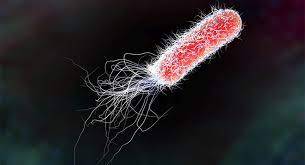
E. Coli is one of the most widely studied bacteria studied in academic research. Though most people probably associate it with food/water borne illness, most strains of E. Coli are completely harmless. They even occur naturally within your intestines. Now, scientists at EPFL have engineered a strain of E. Coli that can generate electricity.
The survival of bacteria depends on redox reactions. Bacteria use these reactions to interconvert chemicals in order to grow and metabolize. Since bacteria are an inexhaustible natural resource, many bacterial reactions have been industrially implemented, both for creating or consuming chemical substrates. For instance, you may have heard about researchers discovering bacteria that can break down and metabolize plastic, the benefits of which are obvious. Some of these bacterial reactions are anabolic, which means that they need to be provided external energy in order to carry it out, but others are catabolic, which means that the reactions actually create energy.
Some bacteria, such as Shewanella oneidensis, can create electricity as they metabolize. This could be useful to a number of green applications, such as bioelectricity generation from organic substrates, reductive extracellular synthesis of valuable products such as nanoparticles and polymers, degradation of pollutants for bioremediation, and bioelectronic sensing. However, electricity producing bacteria such as Shewanella oneidensis tend to be very specific. They need strict conditions in order to survive, and they only produce electricity in the presence of certain chemicals.
The method that Shewanella oneidensis uses to generate electricity is called extracellular electron transfer (EET). This means that the cell uses a pathway of proteins and iron compounds called hemes to transfer an electron out of the cell. Bacteria have an inner and outer cell membrane, so this pathway spans both of them, along with the periplasmic space between. In the past, scientists have tried to engineer hardier bacteria such as E. Coli with this electron-generating ability. It worked… a little bit. They were only able to create a partial EET pathway, so the amount of electricity generated was fairly small.
Now, the EPFL researchers have managed to create a full pathway and triple the amount of electricity that E. Coli can produce. "Instead of putting energy into the system to process organic waste, we are producing electricity while processing organic waste at the same time -- hitting two birds with one stone!" says Boghossian, a professor at EPFL. "We even tested our technology directly on wastewater that we collected from Les Brasseurs, a local brewery in Lausanne. The exotic electric microbes weren't even able to survive, whereas our bioengineered electric bacteria were able to flourish exponentially by feeding off this waste."
This development is still in the early stages, but it could have exciting implications both in wastewater processing and beyond.
"Our work is quite timely, as engineered bioelectric microbes are pushing the boundaries in more and more real-world applications" says Mouhib, the lead author of the manuscript. "We have set a new record compared to the previous state-of-the-art, which relied only on a partial pathway, and compared to the microbe that was used in one of the biggest papers recently published in the field. With all the current research efforts in the field, we are excited about the future of bioelectric bacteria, and can't wait for us and others to push this technology into new scales."
148 notes
·
View notes
Text
How Brazil Recycling Co-ops Are Helping Turn Plastic Waste Into Shoes
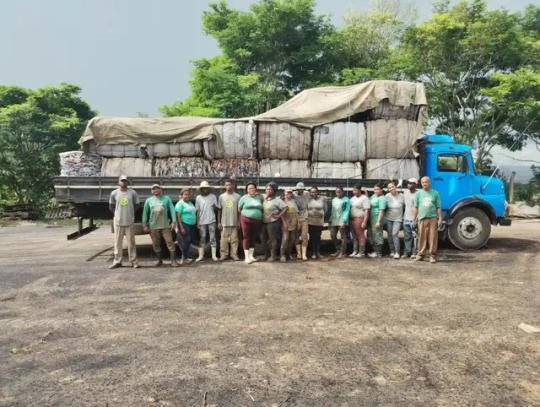
In the searing heat at the ACAMTC recycling cooperative south of São Paulo, in Três Corações, Brazil, a group of recycling waste workers known as Catadores prepared bales of discarded plastic for transport. As the group of mostly women worked, they spoke humbly of how important their work is to helping make the planet a cleaner place. “I feel a mix of admiration and sadness,” said Evelini Castro Rocha, financial director of the Rede Sul e Sudoeste de Minas Gerais network of cooperatives. “The work of the Catadores is essential for the health of the environment, and I am very happy to be a part of it.” But, she worries they don’t get enough recognition for their work.
The inconvenient truth is that all the shoes we’ve ever owned and discarded are likely still sitting in a landfill. Over 24 billion pairs of shoes are produced globally each year, and in the U.S. alone, an estimated 300 million pairs are thrown away annually. With fast-fashion rampant, and marketing focused on novelty, designed to drive up consumption, people are buying more, but keeping items for half as long. Footwear is no exception, with consumers amassing sizable shoe collections with an equally sizable carbon footprint.
The fashion and textile industry has a reliance on petroleum-based materials, considered indispensable for their durability and versatility. Polyester, for example, now dominates as the most widely used fiber with 71 million tons produced in 2023, accounting for 57% of global fiber production. From nylon to acrylic, these synthetic materials have a concerning climate cost: the fossil fuels associated with textile production are contributing to the industry’s hefty climate footprint, with environmental impacts across the value chain, including water use, energy consumption, the release of microplastics, and over 92 million tons of textile waste produced per year. This non-biodegradable textile waste ends up in landfills where it can take hundreds of years to break down, releasing greenhouse gasses and leaching toxic chemicals into groundwater and soil.
But an increasing number of brands are swapping out synthetic fibers for lower-impact recycled alternatives—like polyester made predominantly from polyethylene terephthalate (PET) plastic bottles—in a bid to minimize their environmental impact. The challenge, however, is that they are still synthetic materials at the end of the day, with many of the same impacts as their virgin counterparts. However, a supply chain focused on upcycling, complemented by initiatives designed to keep such materials from ending up as waste, can help mitigate some of these impacts.
Continue reading.
#brazil#brazilian politics#politics#environmentalism#good news#image description in alt#mod nise da silveira
20 notes
·
View notes
Text
“We are seeing a growing interest in cork as a sustainable material,” says Rui Novais, a materials expert at the University of Aveiro in Portugal. “Compared with materials like polyurethane foam [used for thermal insulation], products made with cork require less energy and produce less CO2 emissions.” The cork oak’s thick bark adapted to defend the tree from fire, making it a powerful insulating material that’s been used to shield fuel tanks on NASA spacecraft and electric car batteries. It’s also resistant to water and oil, and can withstand compression while retaining springiness. “It’s an extraordinary, renewable and biodegradable material,” says Novais. “It’s also very durable. It has been demonstrated that cork products remain virtually unchanged for more than 50 years.” Part of the carbon absorbed by cork oak trees is transferred to cork products, which can be used for long periods, repurposed and recycled. Several studies found that cork is carbon negative, meaning it can store more carbon than what is required to produce it. When cork planks are trimmed and punched to form natural cork stoppers, the leftovers are ground into granules and pressed together to form cork sheets or blocks. “Even cork dust is used to produce energy,” says João Rui Ferreira, secretary general of the Portuguese Cork Association. “It feeds the industry’s boilers and powers some of the production.”
[...]
Most of the cork produced in Portugal grows in the gently undulating hills and plains in the south of the country, in an ancient agroforestry system known as montado. This savannah-like ecosystem combines cork, holm oaks and olive trees with pastures, grazing livestock, crops and fallows. “The soil in southern Portugal is very poor, there is very little rain and temperatures are very high in the summer,” says Teresa Pinto-Correia, a professor at the University of Évora in Portugal specializing in rural landscapes and agricultural systems. “But this kind of system is productive even when resources are scarce and conditions are difficult.” For centuries, locals have preserved the montado because cork provided landowners with a source of income. This mosaic of habitats supports hundreds of species, including the Iberian lynx, the world’s most endangered wildcat, and the threatened Imperial eagle. One of the world’s oldest known cork oak trees, planted in 1783 in Águas de Moura, is known as “the whistler” because so many birds visit its large sprawling branches. Iberian pigs feed on acorns and goats graze the interwoven pastures. Interspersing cork oak trees with animals and crops can boost production and biodiversity, but also build soil, control erosion, retain water, combat desertification and sequester carbon, says Pinto-Correia.
138 notes
·
View notes
Text
Let’s talk Limbus Company!
Something I recently noticed is that Limbus Company’s Abnormality numbering system is slightly different from that of Lobotomy Corporation. Whereas L Corp. used one letter and two numbers, the Company threw in an additional number to the set that throws everything slightly off. Additionally, there’s a few extra variations we see in Limbus that we don’t in Lobotomy, so without further adieu, here’s what I think the different parts of Limbus Company’s Abnormality designations mean, gathered from what we already know and have theorized about L Corp’s system:
Letter — Denotes the Abnormality’s origin as one of the following:
• Original — Spawned from nothing but the thoughts and desires of the Dreamer and therefore the purest type of Abnormality
• Trauma — Spawned as the fallout of the Dreamer’s grievances with the City
• Fairytale — Based on literature or folklore, generally originating from outside the City
• Myth — Based on artifacts and ideas discovered from the days before the City, but could also be exclusively religious in nature (it is difficult to tell given we currently only have three known examples to go off)
• Sin — Spawned from one of the seven sin resonances, so far only consisting of Peccatulae
• Donator — Granted to L Corp. from an outside source
First Number — Denotes the shape of the Abnormality as follows:
1 - Humanoid Organism
2 - Non-Humanoid Organism
3 - Supernatural Being
4 - Object without Moving Parts
5 - Object with Moving Parts
6 - Undefined
7 - Breaching Tool
8 - Peccatulum
9 - Standard Tool
Second Number — Denotes the District in which the Abnormality was first encountered by Limbus Company.
Third Number — Unique identification number given to each Abnormality within a District.
So, for a few examples as proof of this theory’s validity:
S-08-04-01, Peccatulum Gulae, is a Peccatulum (Automatically making it S-08) and the first Abnormality we meet in the game’s first dungeon in District 4 (Making the last two numbers 04-01).
M-04-04-05, Doomsday Calendar, is based on the stone calendars created by Mesoamerican cultures of the real world (M-04). It is the fifth Abnormality encountered in District 4 (04-05). Also, from now on, I won’t be bothering with the third number because it is somewhat arbitrary.
T-04-10-05, Have You Become Strong, takes the form of a large, plastic freight container and can be presumed from its combat event to be formed from a dreamer who was involved in or witnessed some kind of industrial accident (T-04). It is found in District 10 (10-05).
F-05-10-18, Baba Yaga, is based on a Russian folk character, a witch known as… Baba Yaga (F). Specifically, it is based on the hut that the witch lived in that walked about on fowl’s legs (05). It is found in District 10 aaand you get the idea.
Now, the weird one that kind of threw a wrench in this entire thing initially was F-04-03-04, Ebony Queen’s Apple. This Abnormality is an Aberration of Snow White’s Apple from Lobotomy Corporation and Library of Ruina, automatically making it a Fairytale-type due to its association with the popular children’s story. Though some might argue it should be considered a humanoid or non-humanoid organism, this apple has already fallen from its tree and is therefore more in the inanimate object category, making its first number 04. Make sense so far? Of course it does. The strange thing about this Abno is that, despite making its debut appearance in District 4, its second number is 03. So, why is this?
There are two possible theories. One is that the Abnormality is not one of a kind, and that a previous team from Limbus also sighted the exact same creature in District 3, which opens up an entire can of worms about the uniqueness of Abnos. The second is that, shortly before the fall of L Corp, the Ebony Queen’s Apple was transferred from a Branch in District 3 over to the one Yuri worked at, which ALSO has weird implications.
Anyway, I’ve rambled on way too long about this, now. I don’t really have a good way of ending this post, so I guess I’ll just say that Limbus is still a relatively new game, and I’ll be making sure to check how future Abnormalities fair in this classification system.
Ciao!
#limbus company#limbus posting#lobotomy corporation#lobcorp#library of ruina#but that’s just a theory#a game theory#thanks for watching
231 notes
·
View notes